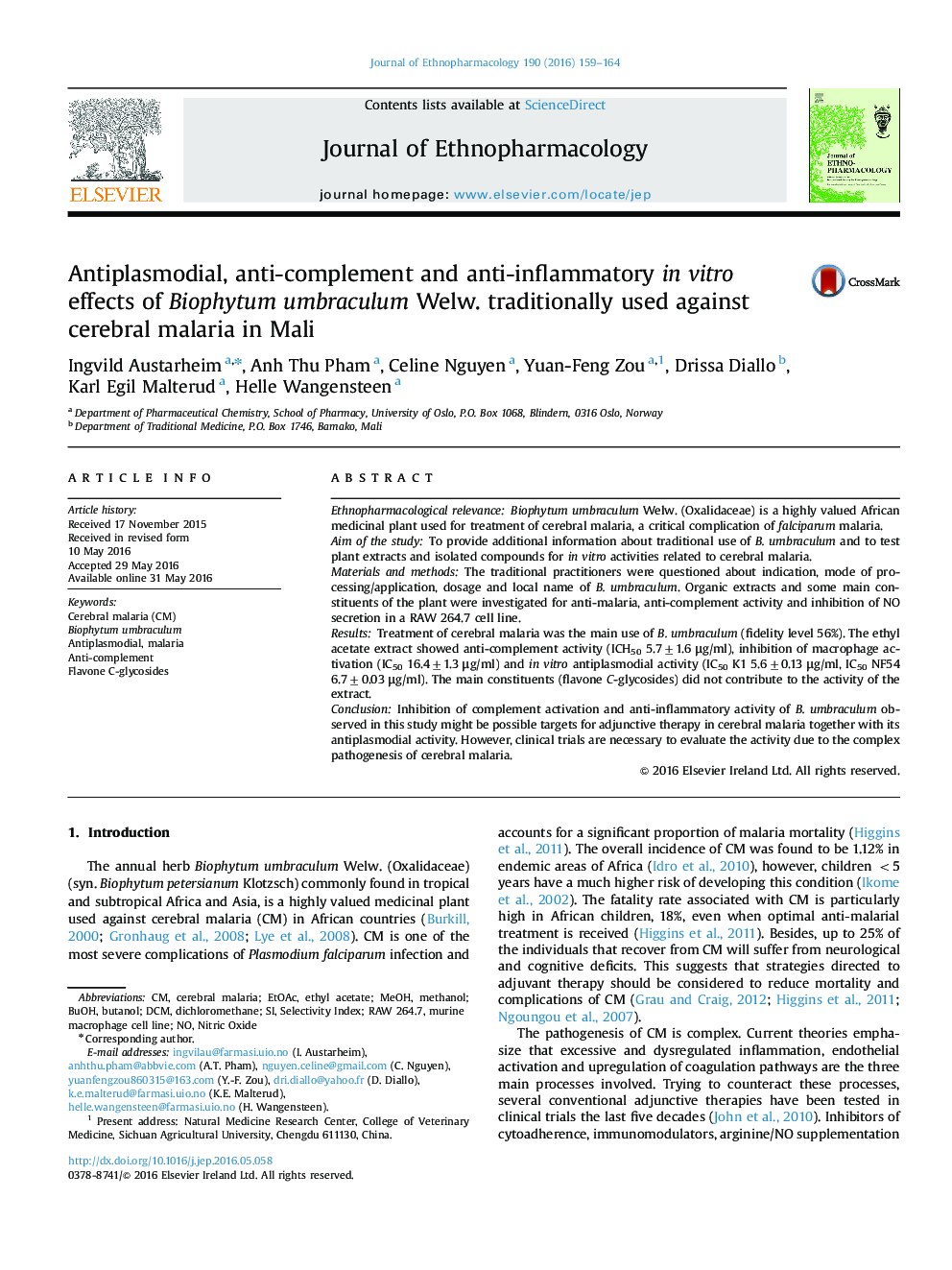| Article ID | Journal | Published Year | Pages | File Type |
|---|---|---|---|---|
| 2544509 | Journal of Ethnopharmacology | 2016 | 6 Pages |
Ethnopharmacological relevanceBiophytum umbraculum Welw. (Oxalidaceae) is a highly valued African medicinal plant used for treatment of cerebral malaria, a critical complication of falciparum malaria.Aim of the studyTo provide additional information about traditional use of B. umbraculum and to test plant extracts and isolated compounds for in vitro activities related to cerebral malaria.Materials and methodsThe traditional practitioners were questioned about indication, mode of processing/application, dosage and local name of B. umbraculum. Organic extracts and some main constituents of the plant were investigated for anti-malaria, anti-complement activity and inhibition of NO secretion in a RAW 264.7 cell line.ResultsTreatment of cerebral malaria was the main use of B. umbraculum (fidelity level 56%). The ethyl acetate extract showed anti-complement activity (ICH50 5.7±1.6 μg/ml), inhibition of macrophage activation (IC50 16.4±1.3 μg/ml) and in vitro antiplasmodial activity (IC50 K1 5.6±0.13 μg/ml, IC50 NF54 6.7±0.03 μg/ml). The main constituents (flavone C-glycosides) did not contribute to the activity of the extract.ConclusionInhibition of complement activation and anti-inflammatory activity of B. umbraculum observed in this study might be possible targets for adjunctive therapy in cerebral malaria together with its antiplasmodial activity. However, clinical trials are necessary to evaluate the activity due to the complex pathogenesis of cerebral malaria.
Graphical abstractFigure optionsDownload full-size imageDownload high-quality image (356 K)Download as PowerPoint slide
